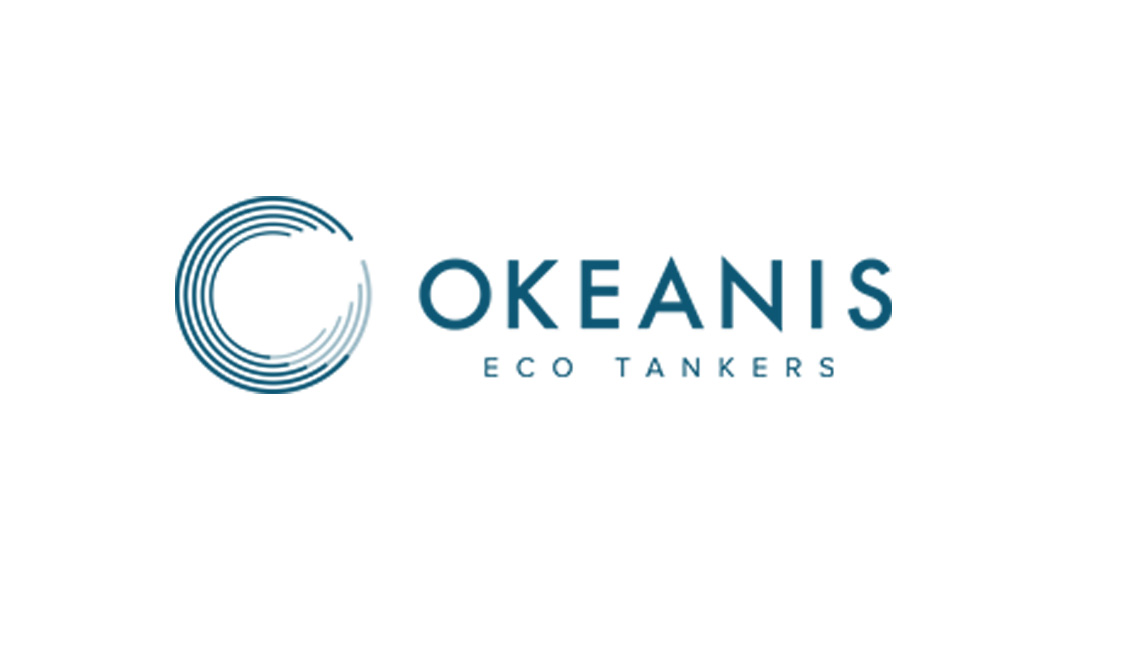
During a May 2024 Q1 earnings call with analysts, Okeanis CEO Aristidis Alafouzos tried to give assurances that the company was not carrying sanctioned Russian oil. Recently published data point to the opposite.
On 15 May 2024 Aristidis Alafouzos, CEO of the NYSE-listed Okeanis Eco Tankers, wrote a triumphant tweet about his company’s revenues. On a chart with spot earnings of rival companies he hand-drew the earnings of Okeanis, showing that the company had higher earnings for the past four quarters. The tweet was made one day ahead of the company’s Q1 2024 Conference Call.
Invited to this call, amongst others, were analysts from Fearnley Securities, Pareto Securities, ABG Sundal Collier, Clarksons Platou Securities, Carnegie Investment Bank AB, and B. Riley Securities. Also invited were representatives of Okeanis’ shareholders, apart from the Alafouzos family, and major investment banks including State Street Bank and Trust Company, Avanza Bank AB, Interactive Brokers LLC, Bank of New York Mellon, Brown Brothers Harriman (Lux.) SCA, Clearstream Banking, Nordnet Bank AB, Citibank, NORDNET LIVSFORSIKRING AS and Sogna Capital.
During that call, as reported by Tradewinds on 17 May 2024, Aristidis Alafouzos insisted that his company was still outperforming rivals and “said that bookings so far from April to June had been at $75,900 per day for 82% of days on its VLCCs and $60,800 per day for 57% of suezmax capacity. This is 50% and 48% respectively more than competitors that have released their bookings to date”.
However, this outperformance came under scrutiny during the call by the analysts who had been fielding questions from clients over these figures. One participant said that this “almost sounds too good to be true”.
Aristidis Alafouzos then tried to offer an explanation of this outperformance by pointing to the supposed good positioning of a relatively small fleet that could pick the exact cargoes they wanted, triangulate their charters and drastically reducing the time ships are sailing carrying ballast rather than cargo.
It seems that analysts were not convinced that Okeanis had basically reinvented the wheel – since all major shipping companies engage in such planning of charters – and analysts asked the obvious question: namely, whether such extra earnings implied the carrying of higher-risk oil price cap cargoes from Russia.
Such questions were expected to be raised, given the extent of Russian oil cargoes carried by both Okeanis Eco Tankers and Kyklades Maritime Corporation, the Alafouzos family’s privately-owned shipping company. This was well known among industry specialists at the time, but more recently made headlines when tovima.com revealed marine traffic about Alafouzos-owned ships carrying oil cargoes from Russian ports after the beginning of the Russian invasion of Ukraine.
When facts contradict words
According to the Tradewinds article, Aristidis Alafouzos insisted that the company had not been relying on higher-risk price cap cargoes from Russia. “The suezmax cargoes that we lifted from the Black Sea, they were all from CPC and I think most of them were fixtures to a US oil major”, he said, adding that Okeanis has not carried any Russian oil under the price cap in 2024 or since the beginning of 2023.
It is true that CPC is the Russian Black Sea terminal that exports a blend of 90% Kazakhstani and 10% Russian crude that is not under sanctions. It is also true, according to Maritime traffic data and cross-checked with market sources, that Okeanis does transport oil from CPC.
However, the marine traffic data that tovima.com published show that Okeanis also transported in 2023 and 2024 Russian oil under the price cap: from Novorossiysk, Primorsk, Murmansk, Kozmino and Ust-Luga.
According to these data, ships currently listed (according to the company’s website) as part of the Okeanis fleet, carried at least ten Russian price cap oil cargoes in 2023 and 2024. If we add to this number the cargoes carried by Kyklades Maritime Corporation, the company privately owned by the Alafouzos family (which has ships cross-listed with Okeanis), the number is much higher, meaning that a significant part of the cargoes carried by ships owned by the Alafouzos family had to do with price cap Russian oil.
Regarding the data pointing to Alafouzos-owned ships engaging significantly with carrying sanctioned Russian oil, we should add the fact that URALS (the benchmark for Russian oil) have been trading above the price cap for almost the entirety of this period, something that can be considered an extra “incentive” for those that want to engage in sanctions-breaching shipments. It is also well known in shipping that higher-than-average earnings often point to high-risk cargoes, including oil carried in breach of the sanctions.
When Alafouzos admits engaging in high-risk cargoes
During the call, Aristidis Alafouzos admitted carrying cargoes from areas that are considered high-risk, when there are “available and safe” cargoes. He also openly admitted that he would have no problem with carrying cargoes even from Venezuela and the Russian Black Sea ports: “I don’t think there’s any higher risk of loading in Libya, West Africa, Venezuela, Black Sea than in the AG [Arabian Gulf]”
Consequently, he described the company’s strategy in the following manner: “Once we are comfortable with safety, our job is to make as much money for the shareholders as we can”.
One might say that by describing the company’s choices in such a manner, Aristidis Alafouzos implicitly admitted that the company would have no problem carrying price-cap Russian cargo, irrespective of all the ethical and legal questions involved in such a choice.
Important questions remain unanswered
So far, Okeanis Eco Tankers have not given clear responses to the facts presented in the tovima.com article.
If one looks at the data about Alafouzos companies’ shipments out of Russia, one can find many instances of cargoes carried during the period in which the URALS price (the main benchmark of Russian sanctioned oil) exceeded the price-cap.
One can also find cargoes out of Kozmino, after the US Authorities’ alert on 17 April 2023 that cargoes out of that particular port, situated near Vladivostok and the terminal point of the Eastern Siberia – Pacific Ocean Pipeline, were exceeding the price cap.
Moreover, one can also find cargoes out of Murmansk, the Arctic Circle port, after the US sanctioned SUEK, the majority stakeholder of Murmansk port, on 23 February 2024.
Even more surprisingly, it appears that far from being an opportunistic play, there was a conscious effort on the part of the listed company to target such suspicious business. Indeed, several of their ships performed consecutive voyages from those Russian ports. For instance, between February and July 2023, M/T Folegandros only performed voyages from Murmansk to India. At the same time, M/T Kimolos and M/T Poliegos were also running a continuous service between the Russian ports of Murmansk, Ust Luga and Novorossiysk to India. It is unclear whether the companies protected their investors by carrying out any due diligence for those voyages, notably concerning the identity of the Charterers and the authenticity of the documentation provided (if any). Market sources raised specific questions about the identity of the charterers and the fact that some of them have changed names a number of times and none of them have entered into charters with any other reputable public company.
Did they take all the necessary steps to ensure that their vessels were loaded with cargoes that were not in breach of the price cap, including pre-loading attestations that these cargoes complied with the price cap and were not going to be sold at a higher price? Did they end up carrying cargoes with incomplete attestation that were sold at a higher price?
Have their vessels carried cargoes described as CN2707 (oils and other products that are outside the scope of the price cap) without testing analysis confirming that CN Code, and therefore risked carrying sanctioned oil products disguised as non-sanctioned?
Have their vessels been chartered or sub-chartered to companies that have been sanctioned by the US, EU or UK (whether or not they were sanctioned at the time), and what steps have they taken to avoid dealing with companies and vessels that are currently under sanctions?
To date, Okeanis Eco Tankers have also not responded to the serious allegations relating to the sale by Kyklades Maritime of Nissos Delos at the end of 2024, a tanker that now seems to be part of the Russian “dark fleet.” When they decided this sale, were they aware that this would be the outcome? Have they sold or otherwise disposed of any vessels that have subsequently been used in Russia, or that might now be characterized as part of the dark fleet or ended up being owned or operated by companies that have been sanctioned? Have they taken all the steps to avoid such a breach of EU directives?
Source: tovima.com
Latest News

Inflation in Greece at 3.1% in March, Eurostat Reports
Average inflation in the eurozone settled at 2.2%, compared to 2.3% in February

Greece’s Unemployment Rate Drops to 8.6% in February
Despite the overall decline, unemployment remains higher among women and young people.

Jerry Kalogiratos Highlights Key Role of Energy Transition and Data Demand in LNG Outlook
Energy transition and the prospects of LNG were discussed at Capital Link’s 19th Annual International Maritime Forum, during a panel discussion with Jerry Kalogiratos (Capital Clean Energy Carriers Corp.)

Santorini Safe and Ready for a Dynamic Tourism Season
Authenticity, cultural heritage, and genuine experiences at the center of Santorini's new promotional campaign

Electricity Bills: Greece Announces Reduced Tariffs Schedule
Greece will now offer lower electricity rates between 11:00-15:00 and 02:00-04:00

Chevron Confirms Eyeing Natural Gas Exploration South of Crete
Chevron recently declared its intent to explore a third area, south of the Peloponnese.
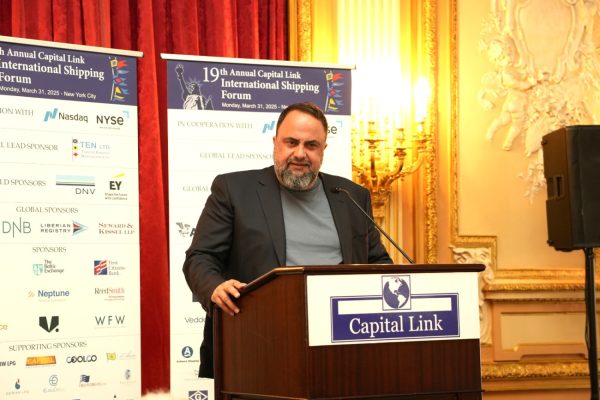
Evangelos Marinakis: A time of change from which shipping can benefit
Speaking at the 19th Annual Capital Link International Shipping Forum Evangelos Marinakis stressed the challenges that shipping faces today

Retail Trade in Greece Up 2.5% in December 2024: ELSTAT
In January 2025, the General Turnover Index recorded a 2.5% increase compared to January 2024. Compared to December 2024, it recorded a significant decline of 18.4%
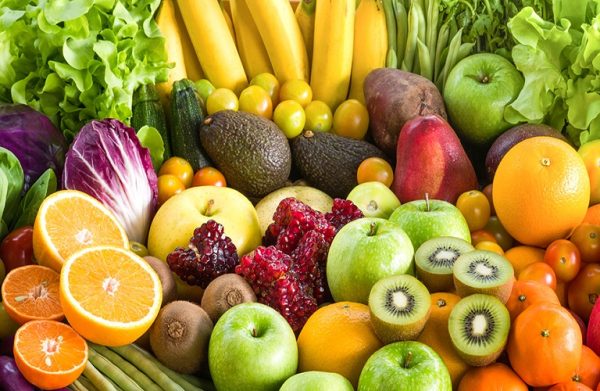
Greek Fruit and Vegetable Exports Surge
Greek exporters have expressed concerns over a new draft law in Bulgaria that mandates at least 50% of products in stores to be of Bulgarian origin.
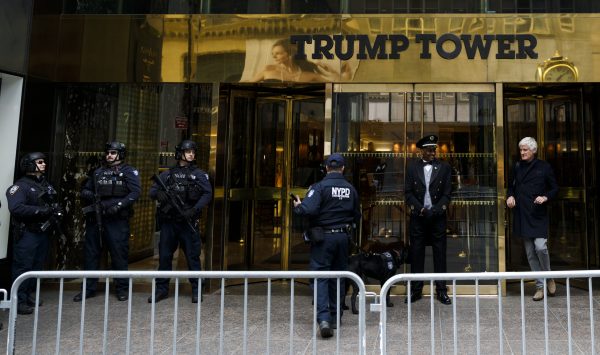
Trump Tower in Greece? Speculation Grows Over Potential Investment
In 2007, the Trump Organization explored the possibility of constructing a skyscraper complex and casino at the former Ellinikon Airport site in Athens











![Τουρκία: Μεγάλες βλέψεις για παραγωγή ηλεκτρικών οχημάτων [γράφημα]](https://www.ot.gr/wp-content/uploads/2025/03/ot_turkish_autos-90x90.png)











![ΕΛΣΤΑΤ: Αυξήθηκε η οικοδομική δραστηριότητα κατά 15,6% το Δεκέμβριο [πίνακες]](https://www.ot.gr/wp-content/uploads/2025/03/DSC9655-2-1024x569-1-90x90.jpg)


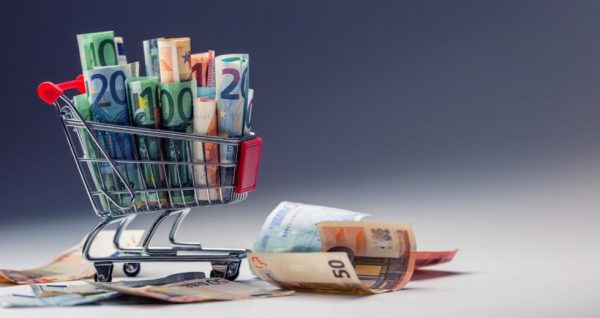
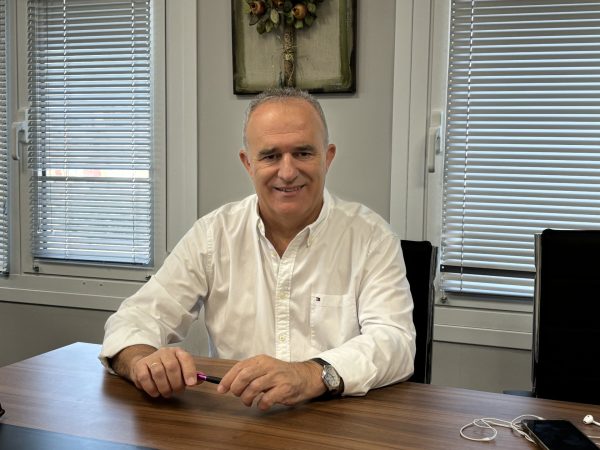
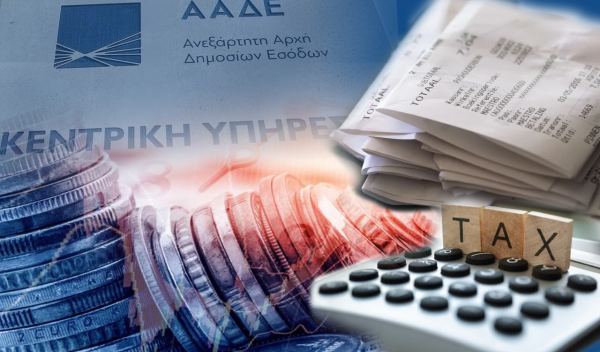

![Δασμοί Τραμπ: Αντίστροφη μέτρηση για την «Ημέρα Απελευθέρωσης» – Μνήμες από τη Μεγάλη Ύφεση [γραφήματα]](https://www.ot.gr/wp-content/uploads/2025/04/ot_trump_tariffs2-600x352.png)
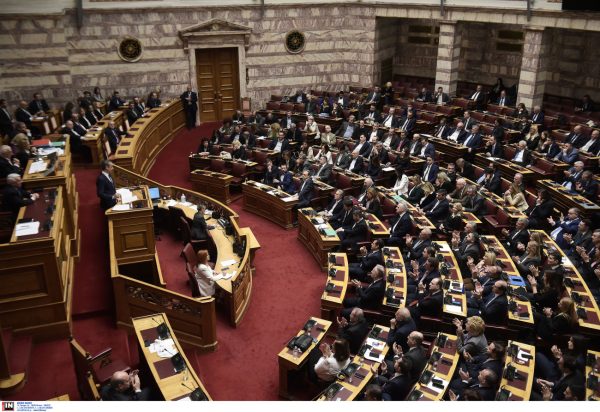
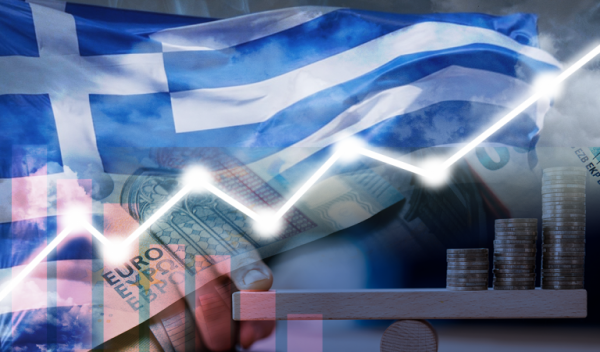
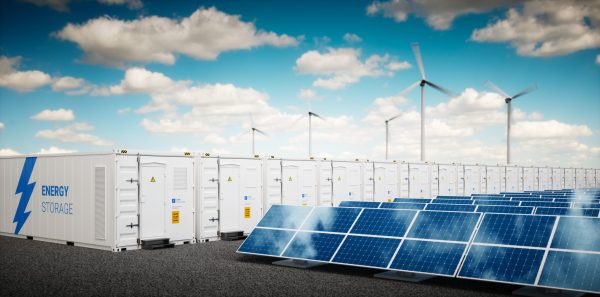

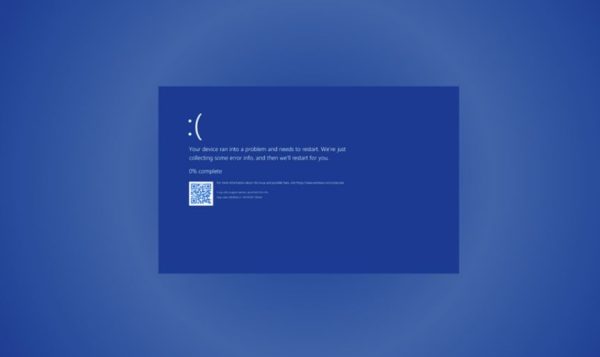

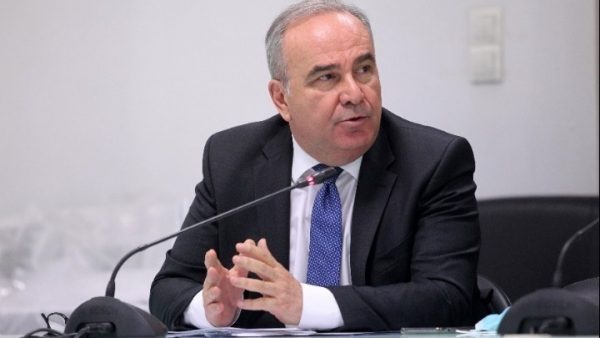
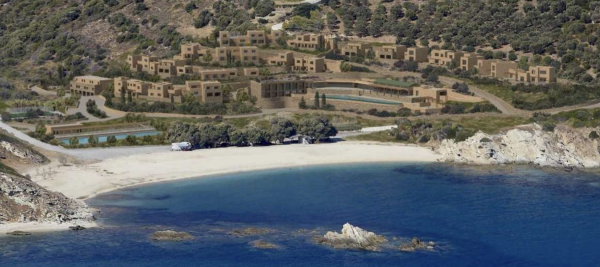


 Αριθμός Πιστοποίησης
Αριθμός Πιστοποίησης